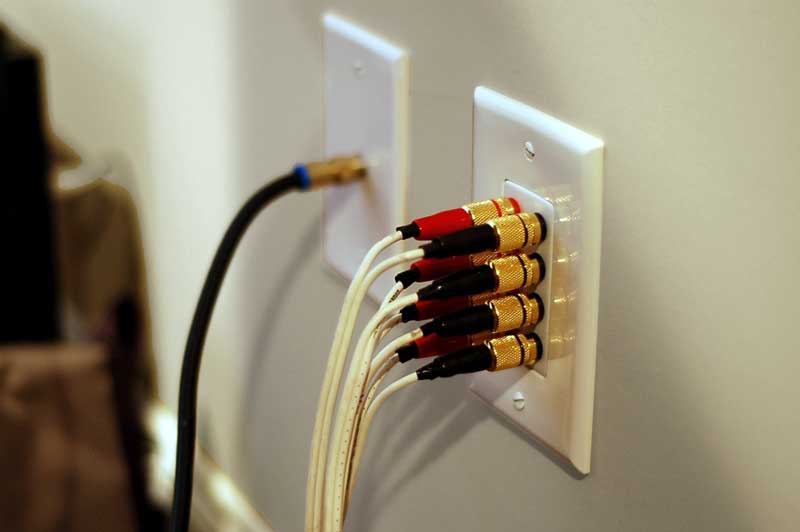Is Copper-Clad Aluminum Speaker Wire OK?
After days (or weeks) of planning, you’ve received your new home theater speakers. You couldn’t be more excited! You unbox them, place them where you planned for them to live, and make a very upsetting realization. There isn’t enough speaker wire. That’s okay! You run off to the hardware store to pick up some more. Might cost a little extra, but at least you can finish setting everything up without waiting for shipping. But there is a problem – they only have copper-clad aluminum speaker wire! Should you buy it? Let’s discuss.
The Short Answer
If you are standing there with wire in your hand and you just need to know – sonically, copper-clad aluminum speaker wire and oxygen-free copper speaker wire will sound the same. There are a lot of myths about speaker wire (and other types of cables) that we’ve addressed on this website. Most of them revolve around the wire making some sort of sonic difference. If that is your primary concern, you can buy your copper-clad aluminum speaker wire without fear.

The Longer Answer
Electricity really doesn’t care about the medium through which it travels. Aluminum, copper…it doesn’t care. What does make a difference is how conductive that material is leading to how hard it is for the electricity to flow through easily. Aluminum is just fine. It isn’t quite as easy for electricity to flow, but it doesn’t add enough resistance to make an audible difference. But that doesn’t mean we recommend you buy it all things being equal. What are our concerns?
More Troublesome to Work With
Aluminum wire, when you touch it with your hands, can discolor your skin. This discoloration is permanent and will not come off with vigorous washing. You’ll have to wait until the discolored skin layer is shed before the marks will go away. Wear gloves when you work with copper-clad aluminum speaker wire.
More Brittle
Copper wire can usually be bent over and over without risking damage to the wire. This is somewhat less true of aluminum. While you can still bend it and manipulate it, aluminum isn’t as supple as copper and will break more easily. As most speaker wire is placed and never touched again, this is unlikely to be a problem in most installations.
Aluminum Wire Can’t Be As Long (But It Doesn’t Matter)
People worry far too much about the length of their speaker wire. We’ve even seen people worrying that having a few extra inches running to one speaker versus another. Of course, this makes no audible difference. You can usually have spools of wire going to one speaker and a few feet to another and not hear any noticeable delay or change in the sound.
But, technically, aluminum isn’t quite as conductive as copper. To round it off, it is about 2/3rds as conductive. In a real-world home theater, this means nothing. No length of speaker wire is going to be long enough to introduce audible difference regardless if it is copper or copper-clad aluminum wire.
Wrap Up
We’ve seen wires that have copper on one side and aluminum on the other as a way of visually identifying each side of the speaker wire. Having one side of your speaker wire be copper and the other aluminum isn’t going to make a sonic difference. It also won’t matter if some of your speaker wire is copper and some are copper-clad aluminum. The short answer here (from above) is still correct. Copper-clad aluminum speaker wire is just fine to use. There are a few downsides, but nothing that will affect how your system sounds. Honestly, that’s really what matters.


